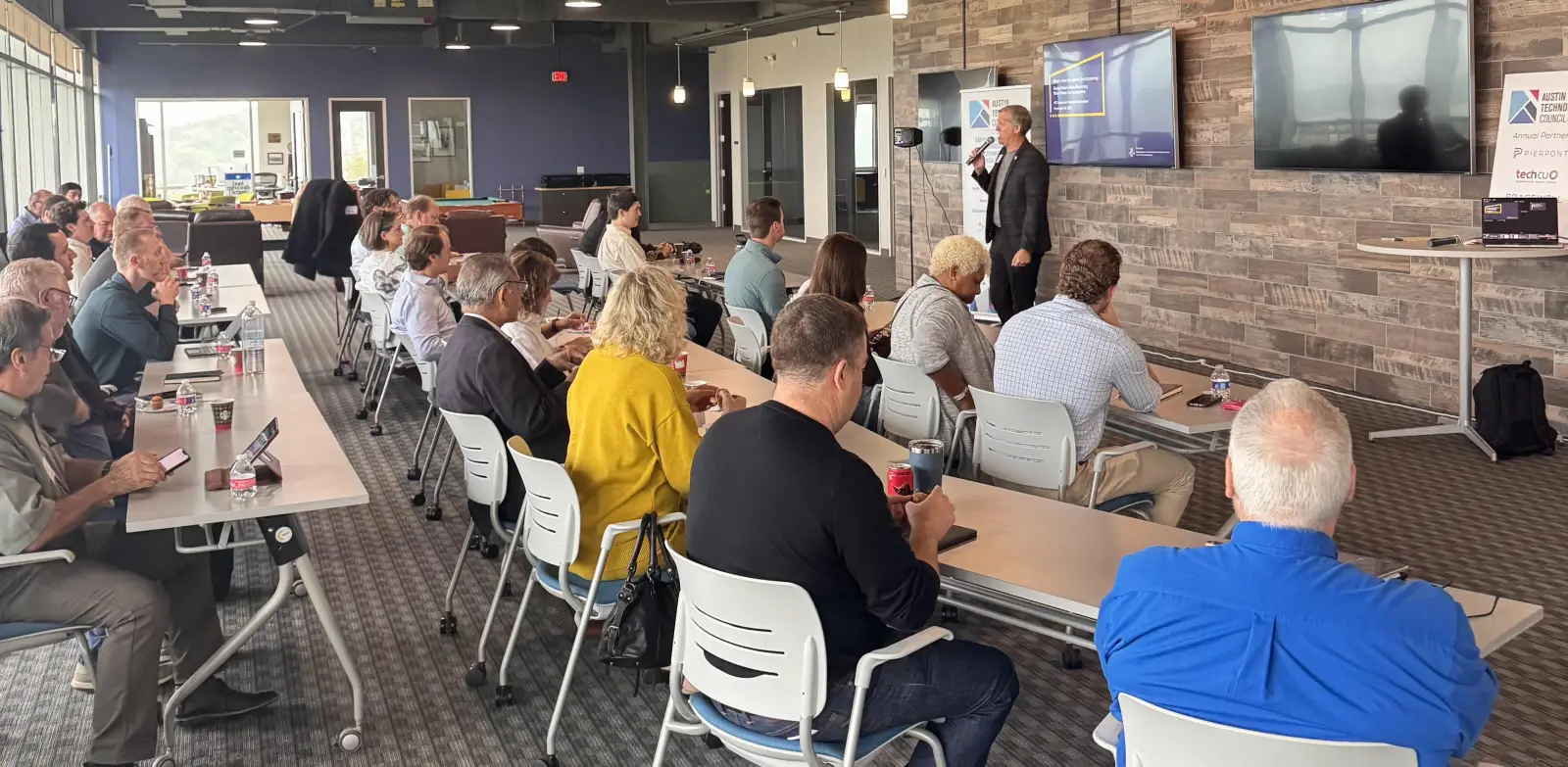At the recent Austin Technology Council Roundtable Breakfast, Tony DeLisi from Ernst and Young joined local leaders to walk through the real data behind Austin’s tech economy. Instead of relying on hand picked feel good statistics or isolated negative headlines, he shared a deeper view of how Austin grew into a tech powerhouse and what it will take to stay competitive in a global era.
The numbers tell a balanced story. Costs have risen, yet Austin remains more affordable than many peer tech markets. Traffic is a challenge, but it is still less severe than in a number of larger hubs. Big global companies have a significant presence in Central Texas, however there is more work to do to connect those enterprises and their employees into the local community so that people who work for global brands also see themselves as part of Austin’s civic and business fabric.
Tony highlighted the long arc of Austin’s growth. Over the past twenty years the region has been transformed by attracting talent, capital and employers. The Austin of today is far more diversified and sophisticated than it was fifteen or even twenty years ago, and that progress cannot be ignored or forgotten when quick takes appear in the press suggesting that “Austin is over” as a tech city.
Looking ahead, the opportunity is global. Around ninety percent of future world GDP growth is expected to occur outside the United States. For Austin based and Texas founded companies, that means developing international relationships, customers and partners will be essential. Texas is already doing important work on cross border research and economic development with cities and countries around the world, and Austin is well positioned to benefit as that activity expands across industries.
Organizations like Opportunity Austin are leaning into this moment, growing their efforts to help Austin operate as a truly global city. Infrastructure is a key part of that story. Just twenty two years ago, Austin’s airport was fairly modest. Today it has grown considerably, yet there is still a need for more direct international flights to support business, tourism and talent attraction.
The region’s people are another powerful global indicator. Approximately sixteen percent of the population is foreign born, a meaningful share that reflects Austin’s increasing international character. At the breakfast, audience members shared how their companies are working with partners in Europe, Asia and Latin America, and how Texas is often at the top of the list for foreign firms seeking a landing spot in the United States. Others in the room represented global employers with significant local operations.
Throughout the conversation, Tony drew on research conducted with Opportunity Austin, layering statistics with stories and questions that encouraged participants to view the data through a personal lens. The discussion moved beyond numbers to focus on culture, identity and responsibility.
Austin is no longer a single sector town. The region has strong clusters in semiconductors, software, med tech, space related technologies, creative tech and more. The intersections between these verticals may hold the key to the next wave of innovation. To unlock that potential, stronger ties between universities and industry will be essential. Other cities are showing what is possible when academic institutions and business communities work in close partnership, and Austin has room to deepen that collaboration.
Participants repeatedly returned to a core theme, Austin cannot assume it has “arrived.” The city’s culture, its history of collaboration, and its willingness to stay a little weird have all contributed to success. Those strengths must be protected and renewed, not taken for granted. That includes keeping ties to the music scene alive and ensuring that future growth does not erode the very character that drew people here in the first place.
There is also an open question that deserves more discussion. What is Austin’s identity in the global marketplace, and who is the city becoming over the next decade. Telling that story clearly, and inviting more tech leaders into conversations about the future, will help Austin stand out in a world where many regions are racing to become global tech centers.
The next chapter of growth does not have to mean losing an edge. With an intentional focus on “One Austin,” with global reach and local character, the community can continue to be a place where people want to build companies, careers and lives, and where the culture that made Austin special is preserved even as the city steps onto a larger global stage.
(Thank you to Ernst and Young for sponsoring the ATC Breakfast Series over the past three months and for providing this month’s speaker.)
